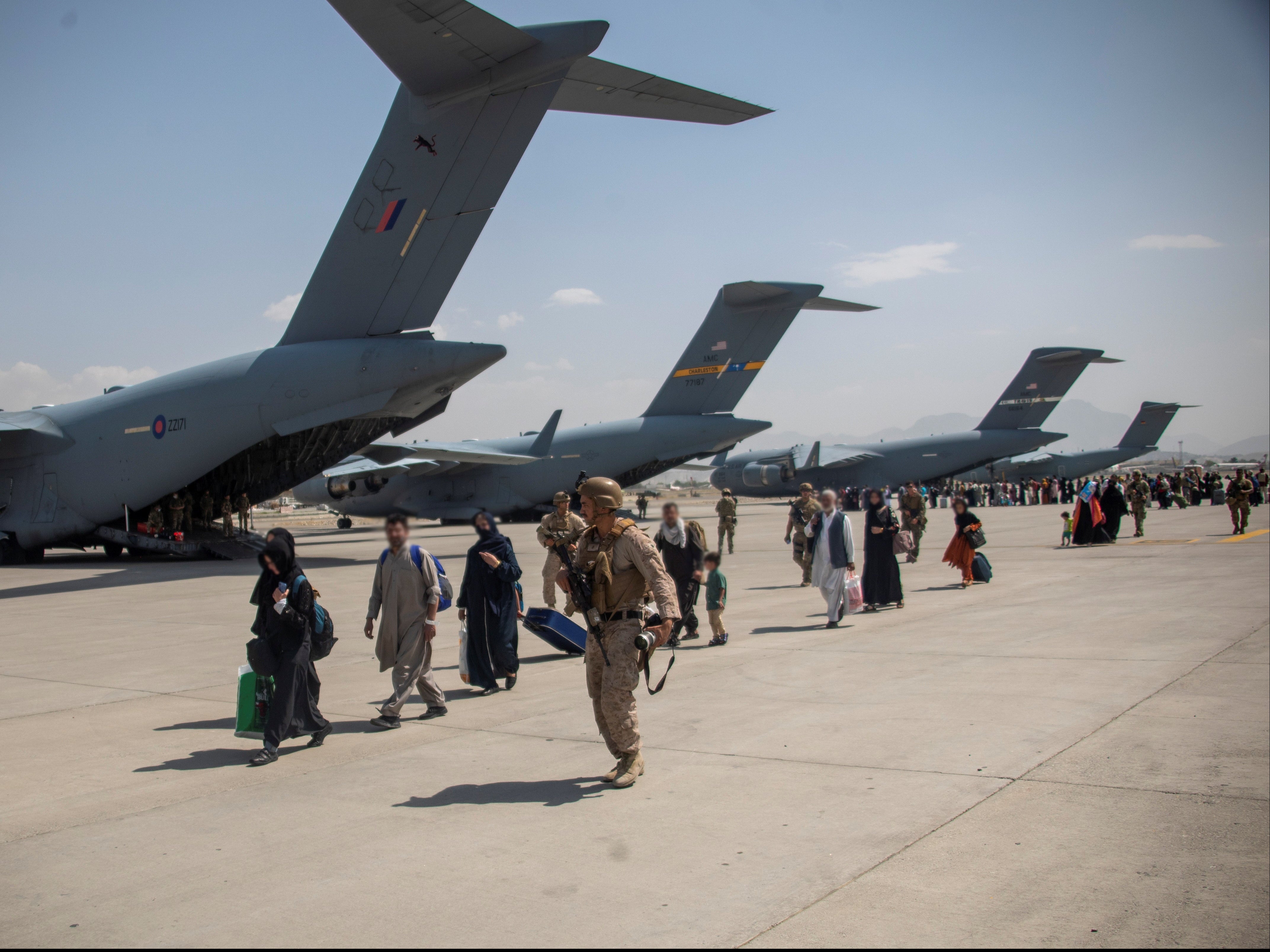Two deadly explosions at Kabul airport have intensified an already difficult situation. It is a tragic turn of events.
Boris Johnson has pledged that the evacuation operation will continue despite the “barbaric” attack, the victims of which include civilians and US military personnel. Mr Johnson said that around 15,000 people have already been evacuated by British troops, and that they account for the “overwhelming majority” of those eligible to be evacuated, with the operation winding down.
Even before the latest blow to the country’s fragile security situation, it was inevitable that some people who should have been flown out would be left behind. There will be people who should qualify for evacuation on a moral basis, but technically do not. The home secretary, Priti Patel, acknowledged this when she said that the government was “absolutely dedicated and committed” to making sure people who do not escape Afghanistan ahead of the withdrawal would be able to make safe journeys to resettle in the UK.
She should be held to that statement. Finding ways to give safe passage to people who did not manage to escape in time will be one of the delicate tasks that will face the government in the coming months. It is not helpful to speculate as to the likely conduits, though it is worth noting that the border crossings with Pakistan, which were shut last month, have now been reopened. All our experience of the refugee emergencies of recent years suggests that borders are quite porous. People will find ways to get out. What happens to them after they do so is a challenge for the rest of the world, and especially to host countries such as the UK.
Safe passage is the first task. The second is to make sure that refugees have the best possible chance of being able to lead successful and fulfilling lives. It not easy to restart a life in a foreign country, however resilient and enterprising people are. There is a fund of goodwill across the west towards Afghan refugees, and that is something to build on. But it is not enough to rely on the kindness of strangers. Western governments, including that of the UK, need to put money behind the resettlement efforts. That applies particularly to Afghan people who have in various ways helped with western endeavours over the past 20 years. The skills that were useful in the past in Afghanistan will add to the human capital of other countries in the future.
That leads to a final thought. What about the people who cannot leave? There are a wide range of enterprises – some charitable, some governmental – focused on improving the lives of the Afghan people, typically dealing with education and healthcare rather than security. Such activities will be difficult for some time, but there will eventually be a period of calm.
Until that happens, we should not lose sight of the objective: to help the people of a troubled nation fulfil their true potential. In the difficult days ahead we need to remember that what matters now is the future of the 38 million Afghan people. If we are wise – and that means learning from our past failures – we can still help.




Join our commenting forum
Join thought-provoking conversations, follow other Independent readers and see their replies
Comments